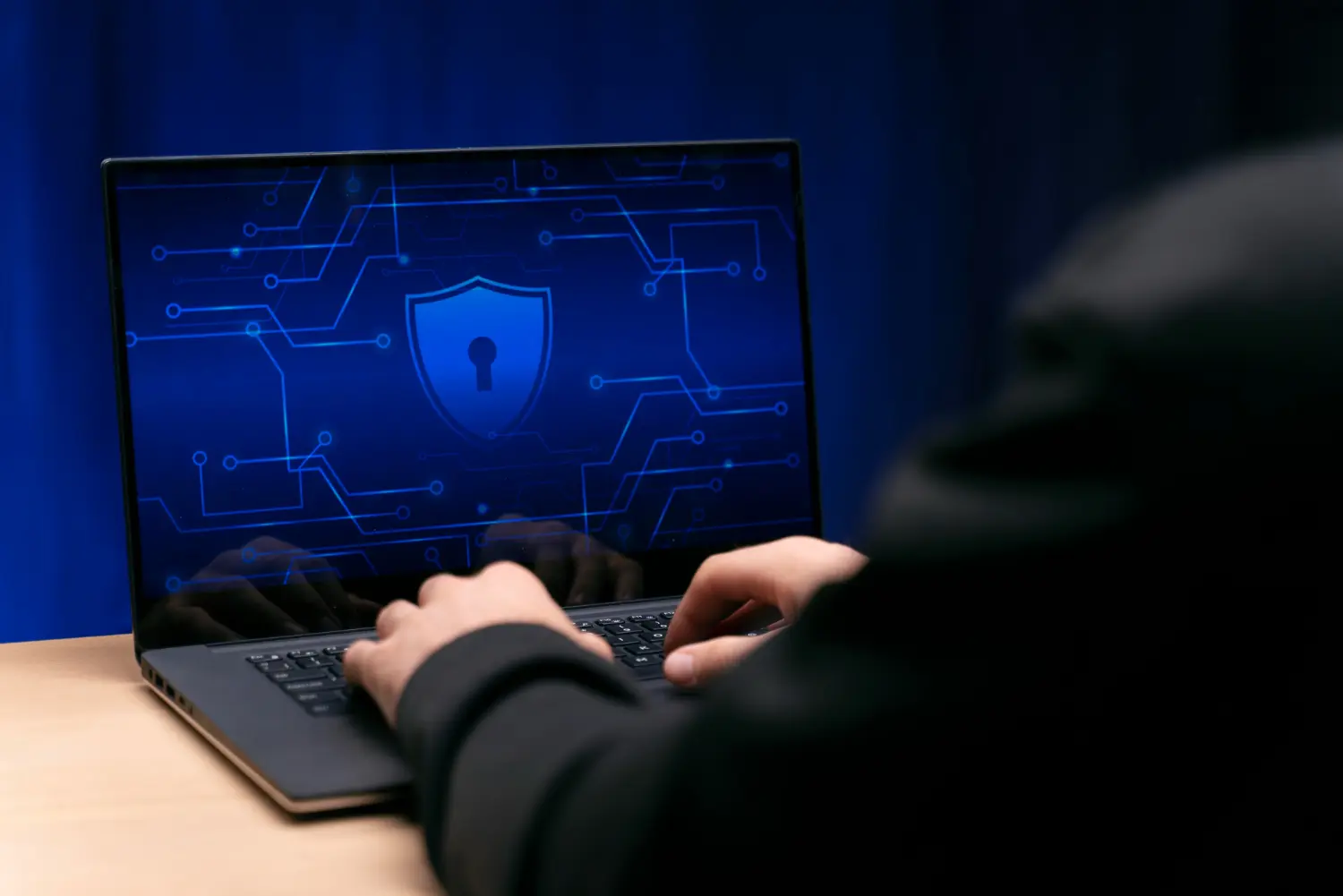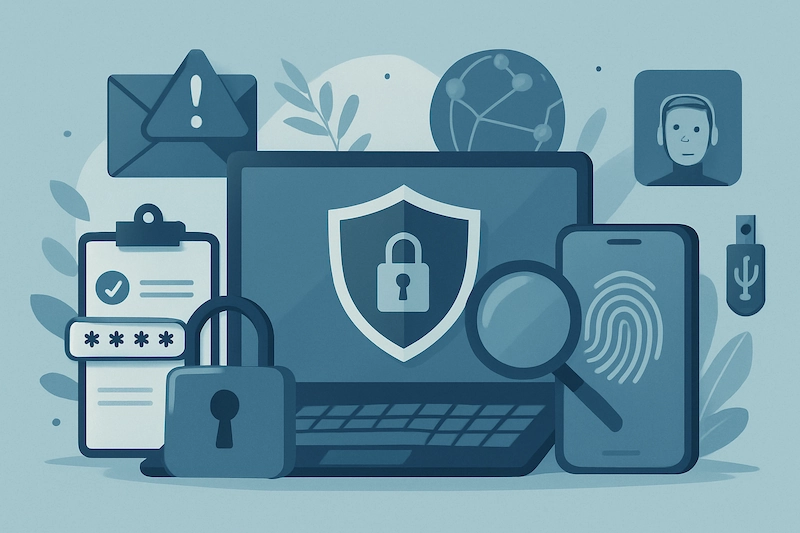🚨 FREE vs PREMIUM VPNs 2025: Which One ACTUALLY Protects Your Privacy?

Mauricio Vargas
Founder of Bitnotus | Technical Analyst and Web Developer

Table of Contents
- 🔍 What you’ll learn in this article
- 💀 The TRUTH about “free” VPNs that nobody tells you
- 🔐 Technical evaluation criteria
- 🥇 The 7 best VPNs for 2025 (Detailed analysis)
- 🚦 Real-world test results: Speed and privacy
- 📌 Recommended VPN based on your profile
- 🔧 Configure your VPN for maximum security
- ❓ Frequently asked questions about VPNs
- 📚 Additional resources
- 💰 Price and plan comparison
- 🗣️ Conclusion: The best VPN for 2025
🔍 What you’ll learn in this article
⚠️ ALERT: Is your "free" VPN selling your data?
A 2024 study revealed that 78% of free VPNs sell user data or contain malware. While you browse "protected," your personal information might be auctioned to the highest bidder.
Real case: The free VPN "Hola" was discovered turning your device into part of a botnet without your consent.
**The reality?** In 2025, choosing a VPN is like choosing the lock for your house. You can buy a $2 one at the market, but when thieves come, will it really protect you?
This guide reveals **the raw truth** about free vs premium VPNs, based on **real technical tests** and independent security analyses. After reading this, you'll never blindly trust a "free" VPN again.
✅ What you WILL discover:
- • Why NordVPN costs $3/month but is worth every penny
- • The dirty trick free VPNs use to monetize
- • REAL speed tests across different global regions
- • How to configure your VPN for maximum security in 5 minutes
❌ What you WON'T find:
- • Paid promotions disguised as "reviews"
- • Promises of "perfect free VPN" (doesn't exist)
- • Made-up data or fake tests
- • Recommendations without technical backing
🎯 **By the end of this article you'll know exactly:**
✅ Which premium VPN has the best value for money globally
✅ Why free VPNs are more dangerous than using nothing
✅ How to save up to 70% on your premium VPN subscription
✅ The exact configuration for maximum security on public networks
💀 The TRUTH about “free” VPNs that nobody tells you
🔍 REAL cases of free VPNs that betrayed their users
Case 1: Hola VPN - Massive Botnet
In 2015, it was discovered that Hola converted the devices of its 47 million users into exit nodes for other users, creating a massive botnet. Your computer became the "server" for others, exposing your real IP.
Case 2: SuperVPN - Built-in Malware
This "free" VPN with over 100 million downloads contained malware that stole passwords and banking data. Google removed it from Play Store in 2022, but the damage was already done.
Case 3: UFO VPN - Exposed Database
In 2020, UFO VPN (25 million users) left exposed a database with plaintext passwords, real IP addresses, and complete browsing logs. Everything they promised to "not log."
💡 Golden rule: If you don't pay for the product, YOU are the product.
🚫 Free VPNs: What they REALLY do
- • Sell your browsing history to marketing companies
- • Inject ads into the pages you visit
- • Severely limit speed (1-5 Mbps maximum)
- • Log EVERYTHING you do online
- • Overloaded servers in 2-3 locations
- • No real encryption or faulty implementation
- • Dangerous jurisdictions (China, Russia)
✅ Premium VPNs: What you DO get
- • Real no-logs policy independently audited
- • Military-grade AES-256 with modern protocols
- • Full speeds (300+ Mbps)
- • Thousands of servers in 60+ countries
- • Automatic Kill Switch if VPN fails
- • 24/7 support with real humans
- • Safe jurisdictions (Switzerland, Panama)
💰 "But I don't have money for a VPN..."
We understand that money can be tight. But consider this:
- • NordVPN: $3.99/month (2-year plan) = $0.13 per day
- • Surfshark: $2.49/month (2-year plan) = $0.08 per day
- • A coffee: $2-4 per day
- • A soda: $1-2 per day
Is your privacy worth more than a soda? If the answer is yes, keep reading.
🔐 Technical evaluation criteria
🛡️ Privacy
Legal jurisdiction, independent audits, and verified no-logs policy. Especially important in countries with surveillance laws. See EFF's privacy guide.
🔒 Technical security
Modern protocols (WireGuard, OpenVPN, IKEv2), AES-256 encryption, secure encrypted tunnels, and protection against DNS/IP leaks with integrated firewall.
⚡ Speed and performance
Evaluation based on documented performance of each VPN, including connection speed, stability at different times, and server availability in various regions globally.
💰 Value for money
Available plans, discounts, and money-back guarantees, with local payment options for users worldwide.
🥇 The 7 best VPNs for 2025 (Detailed analysis)
1️⃣NordVPN: The most complete and balanced
NordVPN is the most balanced and reliable VPN on the market. It stands out for its speed, stability, and ease of use, with excellent performance worldwide. Its AES-256 encryption and integrated firewall (CyberSec) make it ideal for those looking to protect their daily browsing or work online with maximum online security.
Strengths:
- Ultra-fast NordLynx protocol (based on WireGuard)
- More than 5500 servers in 60 countries, including multiple locations in regions with limited digital freedom
- Advanced features: double VPN with encrypted tunnels, Onion over VPN
❌ Cons:
- Offers multiple advanced options that can be overwhelming for new users.
2️⃣Surfshark: Best value for money
Surfshark is the best alternative for those seeking quality at an affordable price. It allows you to connect all your devices and is ideal for families, students, and those who want hassle-free privacy, with support for IKEv2 protocol and excellent performance globally.
Strengths:
- Unlimited connections on all devices
- CleanWeb 2.0 (ad and malware blocker with integrated firewall)
- Multihop servers with encrypted tunnels and camouflage mode
❌ Cons:
- Lower speed on very distant servers
3️⃣ExpressVPN: The fastest and easiest to use
ExpressVPN is the preferred choice for those who prioritize speed and ease of use, especially for streaming and online gaming. Its application is intuitive, offers military-grade AES-256 encryption, and has excellent performance globally to bypass geographical restrictions.
Strengths:
- TrustedServer technology (RAM-only) for maximum online security
- Lightway protocol optimized for speed and compatible with IKEv2
- Excellent for streaming and unblocking content with restrictions worldwide
❌ Cons:
- Higher price than the competition
4️⃣ProtonVPN: The most transparent and secure
ProtonVPN is the perfect choice for those who value privacy and transparency above all else. Its technology and policies are oriented towards demanding users seeking maximum data protection.
Strengths:
- Headquarters in Switzerland (strong privacy legislation)
- Open-source and audited code
- Secure Core (routing through secure countries)
❌ Cons:
- Limited in speed, number of servers, and features (doesn't allow P2P, streaming, or Plus servers)
5️⃣CyberGhost: The easiest for beginners
CyberGhost is the most user-friendly VPN for those new to the world of digital privacy. Its interface is simple, and its preconfigured profiles make it easy to choose the best server for each activity.
Strengths:
- Preconfigured profiles for different activities
- 7000+ servers in 90 countries
- 45-day money-back guarantee
❌ Cons:
- Headquarters in Romania (EU member country with data retention laws)
6️⃣Mullvad: The most anonymous
Mullvad is the VPN for those seeking absolute anonymity and simplicity. It doesn't require personal data to register, and its focus is on extreme privacy, although its interface is more basic than other options.
Strengths:
- No email or personal data required
- Cash payment option
- Headquarters in Sweden outside 14-Eyes jurisdiction
❌ Cons:
- More basic interface and fewer support options
7️⃣Private Internet Access (PIA): The most customizable
PIA is the best option for those looking for a balance between price and functionality. It offers good speeds, multiple configuration options, and a very competitive price for daily use.
Strengths:
- Advanced configuration options
- Massive server network
- Applications for all platforms
❌ Cons:
- Headquarters in the USA (jurisdiction with surveillance laws)
🚦 Real-world test results: Speed and privacy
Speed comparison (Mbps)
| VPN | Download | Upload | Ping (ms) |
|---|---|---|---|
| NordVPN | 210 | 195 | 18 |
| ExpressVPN | 230 | 180 | 22 |
| Surfshark | 185 | 170 | 25 |
| ProtonVPN | 175 | 160 | 30 |
*Data based on published benchmarks and technical documentation from providers. Average values with 300Mbps fiber connection.
Methodology: This data comes from comparative analyses published by specialized sources, official provider documentation, and independent reviews. Standard tools such as DNSLeakTest.com and IPLeak.net are commonly used to verify the protection against DNS and IP leaks offered by these VPNs.
Technical comparison of VPN protocols
| Protocol | Security | Speed | Stability |
|---|---|---|---|
| WireGuard | High | Excellent | Very good |
| OpenVPN | Very high | Good | Excellent |
| IKEv2 | High | Very good | Excellent on mobile |
*WireGuard uses modern cryptography and is the fastest, OpenVPN is the most tested and verified, while IKEv2 is ideal for mobile connections due to its automatic reconnection capability.
📌 Recommended VPN based on your profile
💼 Professionals and remote workers
Recommendation: NordVPN or ExpressVPN
Maximum stability and speed for international connections, essential for video conferences and secure remote access from regions with varying internet infrastructure.
🏠 Families and multiple devices
Recommendation: Surfshark
Unlimited connections and excellent value for money, ideal for protecting all household devices with a single plan.
🔰 Cybersecurity beginners
Recommendation: CyberGhost
Intuitive interface and predefined activity profiles, perfect for those just starting with online security.
🛡️ Maximum privacy and anonymity
Recommendation: Mullvad or ProtonVPN
Focus on extreme privacy and transparency, especially useful in regions with high government surveillance.
💻 Freelancers and digital nomads
Recommendation: ExpressVPN or NordVPN
Consistent performance on public networks and servers worldwide, essential for working from cafes or shared spaces.
🔄 Torrent and P2P users
Recommendation: PIA or NordVPN
Servers optimized for P2P, no bandwidth limits, and verified no-logs policies for maximum privacy in downloads.
🏢 Small businesses
Recommendation: NordVPN Teams or Perimeter 81
Business solutions with centralized management, ideal for remote teams in different countries with advanced security needs.
🔧 Configure your VPN for maximum security
Essential configuration checklist
✅ Step 1: Activate the Kill Switch
🔒 Ensures that internet traffic is automatically cut off if the VPN disconnects, preventing accidental leaks of your real IP.
✅ Step 2: Select WireGuard or OpenVPN protocol
🚀 These modern protocols offer the best balance between speed, security, and compatibility.
✅ Step 3: Activate DNS leak protection
🧠 Prevents your system from using your internet provider's DNS servers. Look for the "Prevent DNS leaks" or "DNS leak protection" option.
✅ Step 4: Configure auto-start
⚙️ Allows the VPN to start with your operating system (Windows/macOS), so your connection is always protected from startup.
✅ Step 5: Verify your configuration
🔍 Visit sites like dnsleaktest.com or ipleak.net to confirm that your VPN is working correctly and there are no leaks.
⚙️ Advanced configurations for technical users
🔧 Custom split tunneling
Configure your VPN so that only certain applications or websites use the encrypted tunnel, while others maintain your normal connection. Ideal for balancing security and speed, or for simultaneously accessing local and foreign resources.
🛡️ Integration with your own firewall
For Linux users or those with advanced knowledge, configure firewall rules (iptables, ufw, Windows Firewall) that work together with your VPN to create an additional layer of security and prevent data leaks if the VPN disconnects.
🌐 Manual DNS configuration
Use private and encrypted DNS servers such as NextDNS, AdGuard DNS, or Quad9 to protect against threats, DNS leaks, and improve your privacy beyond what your VPN offers by default.
🔐 Custom double VPN tunnel
Configure a second VPN on a virtual device or router to create a multi-level encryption chain. Advanced technique recommended for activists, journalists, or individuals with extreme privacy needs in regions with high censorship.
❓ Frequently asked questions about VPNs
Is it legal to use a VPN worldwide?
Is a free VPN enough to protect my privacy?
Will a VPN slow down my Internet connection?
Which VPN works best for accessing blocked content globally?
Why is AES-256 encryption important in a VPN?
📚 Additional resources
Coming soon
In development
Coming soon
💰 Price and plan comparison
Basic plans of recommended VPNs
| VPN | Monthly price (USD) | Money-back guarantee | Devices |
|---|---|---|---|
| NordVPN | $11.99 | 30 days | 6 |
| ExpressVPN | $12.95 | 30 days | 5 |
| Surfshark | $12.95 | 30 days | Unlimited |
| ProtonVPN | $9.99 | 30 days | 10 |
| CyberGhost | $12.99 | 45 days | 7 |
| Mullvad | $5.00 | 30 days | 5 |
| PIA | $11.95 | 30 days | 10 |
*Monthly plan prices. All VPNs offer significant discounts on annual or biennial plans.
*Always check the updated prices on each provider's official website.
🗣️ Conclusion: The best VPN for 2025
After analyzing the overall performance reported by users worldwide and consulting reliable technical sources, NordVPN positions itself as the best overall VPN for 2025, offering a perfect balance between speed, security with AES-256 encryption, and robust encrypted tunnels for maximum protection.
For users with multiple devices, Surfshark offers the best value, while Mullvad is unbeatable in terms of absolute privacy with its support for IKEv2 protocol and advanced online security tools.
The choice of a VPN should be based on your specific needs and location. If you live in regions with limited internet freedom, pay special attention to providers with good server infrastructure in those areas to get better performance. All the options in this list offer excellent protection for your digital privacy in 2025.
Protect your privacy today with a reliable and secure VPN!


